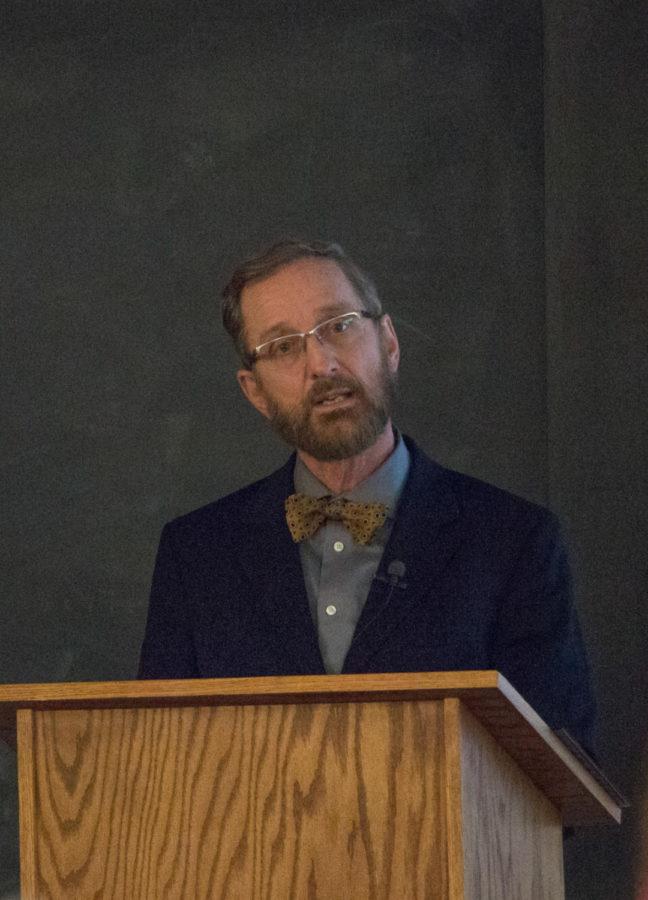Human Science open forums conclude
April 5, 2016
The final dean of the College of Human Sciences open forums took place Tuesday at Bessey Hall, introducing Stephan Wilson to the list of three possible candidates.
Wilson, dean of the College of Human Sciences at Oklahoma State since 2008, was asked to speak about challenges and opportunities for the human sciences department as well as how these issues could be addressed now and in the near future. Taking a different approach to his presentation than the previous candidates, Wilson framed several statements toward the audience and proceeded to provide insight to the questions.
Wilson introduced the theme of a global learning effort, which was mentioned several times during the forum. Given the general goal of helping that is involved with human sciences, Wilson sees a more community-driven curriculum as the future for the program.
“I would argue that a majority of the learning in this program should be done outside the classroom,” Wilson said. “This could be done through internships, mentoring and volunteering.”
Through this broader learning system, self reflection and discovery can be achieved and remove students from their personal comfort zones. Wilson jokingly referred to a college trip he supervised in Kenya, where the the only staff member to receive the West Nile virus contracted it while back home, effectively removing the notion of a divided world.
Referencing today’s advancing technology as an asset to the human sciences world, Wilson believes epidemics and problems in the near future world can be fixed by anyone willing to put in the work.
“We have the scientific and technological advancements in the world where everyone can access water and info, but it’s not there yet,” Wilson said. “We don’t have the education to make these realities true. We are in a place where we are on the brink of eradicating famine and disease, but it is calling for new advancements in human sciences.”
Bill Gates’s Omni Processor, which can turn feces and urine into drinking water, was referenced as a device that could change the world for many but was thought of as impossible for a very long time before innovation met opportunity.
Student diversity and inclusion, and more specifically how Wilson would be able to tackle the job, were brought to light during the open forum.
“Historically, diversity used to be about filling checkmarks, and it has changed to just believing that it’s the right thing to do,” Wilson said. ”We need to have deans who are willing to stand up to things that are not right. There needs to be evidence of gay, muslim, colored, etc. students.”
Inclusion will still remain a difficult task for Wilson given the changing volume and variety of ISU students.
“Inclusion is hard as it’s always evolving given the changing type of students every year, but it’s important to do,” Wilson said.
Ending on a similar note, Wilson said he believes one of the most important improvements to student life on campus is decreasing the amount of time needed to complete an undergraduate degree. Oklahoma State, Wilson’s current school, has students complete degrees in Human Sciences in as many as eight years, which does not fare well for the wallet.
“We need to be turning our heads to degree completion time,” Wilson said. “For several years we’ve been reporting a six-year graduation rate. We have to put some pressure on our students. It is in their best interest to get out of here early. Their priority is to be a student and get out early. those who stay eight to nine years are taking up spots that other undergrads could be taking.”

















